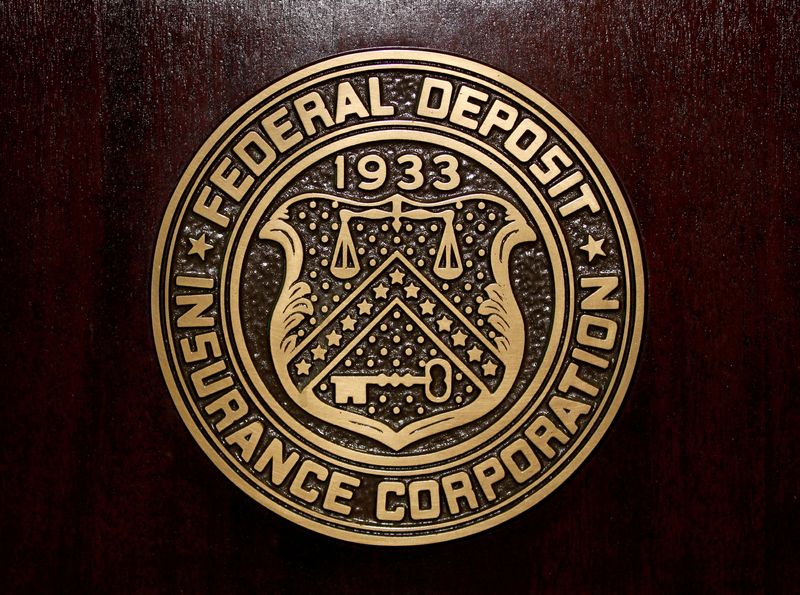By Douglas Gillison and Chris Prentice
WASHINGTON (Reuters) -The White House is close to naming derivatives regulator Christy Goldsmith Romero to replace Martin Gruenberg to head the Federal Deposit Insurance Corp, the Wall Street Journal reported on Monday, citing people familiar with the matter.
Gruenberg, a Democrat, said in May he would step down once a successor was confirmed by the Senate, succumbing to pressure from lawmakers who said the bank regulator needed fresh leadership after an investigation found widespread sexual harassment and other misconduct at the agency.
Goldsmith Romero, 53, has a background in enforcement and has led major actions against Wall Street banks and other financial firms during her career. She joined the Commodity Futures Trading Commission in March 2022 after a decade investigating financial crime and fraud as the watchdog of a key 2009 financial crisis bailout program.
White House officials have also discussed two other women for the job, but Goldsmith Romero has emerged as the front-runner, the newspaper said. A formal announcement could come later this week, according to the report, though it said that President Joe Biden had not yet made a final decision.
The White House declined to comment on the report. Goldsmith Romero also declined to comment. The FDIC did not immediately respond to a request for comment.
During her tenure as special inspector general for the Troubled Asset Relief Program from 2012 to 2022, Goldsmith Romero's office brought cases and cooperated in federal enforcement actions against major corporations, including Goldman Sachs, Morgan Stanley and General Motors (NYSE:GM).
Goldsmith Romero also received awards from the U.S. attorney general and Department of Justice's Criminal Division after her office uncovered a multibillion-dollar fraud, leading to jail terms for former executives at the former mortgage lender Taylor, Bean & Whitaker and the failed Colonial Bank.
In progressive circles, she is seen as a strong fit for the FDIC role and as having the management experience and skill set necessary to help fix the agency's "toxic" environment, as the investigation described the FDIC, and address other challenges.
As a CFTC commissioner, Goldsmith Romero has advocated for stronger policing of U.S. markets and stiffer penalties for misconduct.
Most notably, she has pushed for the agency to secure more admissions of wrongdoing from companies when settling enforcement actions, particularly from repeat offenders.
She has also led the agency's efforts to better understand the potential impact of artificial intelligence on financial markets.
Prior to being appointed as the watchdog for the Troubled Asset Relief Program, Goldsmith Romero was counsel to then U.S. Securities and Exchange Commission chairs Mary Schapiro and Christopher Cox and had investigated securities law violations.

She started her career as a law clerk at the U.S. Bankruptcy Court in Nevada after graduating from Brigham Young University Law School in 1995.
The FDIC is also grappling with the fallout of last year's bank failures, which exposed supervisory weaknesses at the regulator, and is trying to finalize a handful of contentious new rules for Wall Street banks, including major capital hikes.